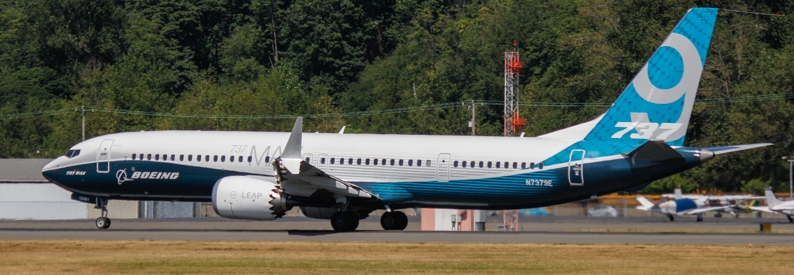FAA Alerts on Engine Inlet Overheating Issue in Certain Boeing 737 Max Aircraft

The US Federal Aviation Administration (FAA) has highlighted potential engine inlet overheating concerns that could lead to elevated cowl temperatures beyond recommended levels on specific Boeing 737 MAX aircraft. This issue affects 1,187 aircraft globally, including 402 registered in the United States.
In accordance with Airworthiness Directive (AD) 2023-15-05 issued on August 10, the FAA received a report in June 2023 revealing that flight testing and analysis demonstrated the possibility of exceeding engine inlet cowl temperature design limits due to engine anti-ice use in dry air for over five minutes under specific altitude, total air temperature, and N1 settings when not in visible moisture.
The FAA stated that “excessive heat buildup can cause overheat of the engine inlet inner barrel beyond the material design limit, resulting in failure of the engine inlet inner barrel and severe engine inlet cowl damage.” The AD clarifies that there have been no recorded in-service failures of the engine inlet inner barrel to date.
The FAA warned of potential consequences if the issue is not addressed, including possible “departure of the inlet,” fan cowl failure, and detachment from the aircraft. Such a scenario could lead to fuselage, window, and wing damage, decompression risks, potential loss of control, increased aerodynamic drag, and asymmetric lift, among other hazards.
An FAA spokesperson stated that an Airworthiness Directive was issued for Boeing 737 airplanes equipped with CFM Model LEAP-1B engines. The directive addresses the engine anti-ice system’s impact on engine inlet inner barrel temperature under certain operational and environmental conditions.
Boeing acknowledged that under specific weather and operational conditions, the engine anti-ice system might result in the inlet structure exceeding its maximum design temperature range. Boeing emphasized that the issue was identified as part of its design analysis, acknowledging it as a “theoretical possibility” unlikely to impact deliveries. Boeing has developed mitigations and is collaborating with affected airlines to implement them while awaiting operational guidance from the Airplane Flight Manual and a more permanent solution.
